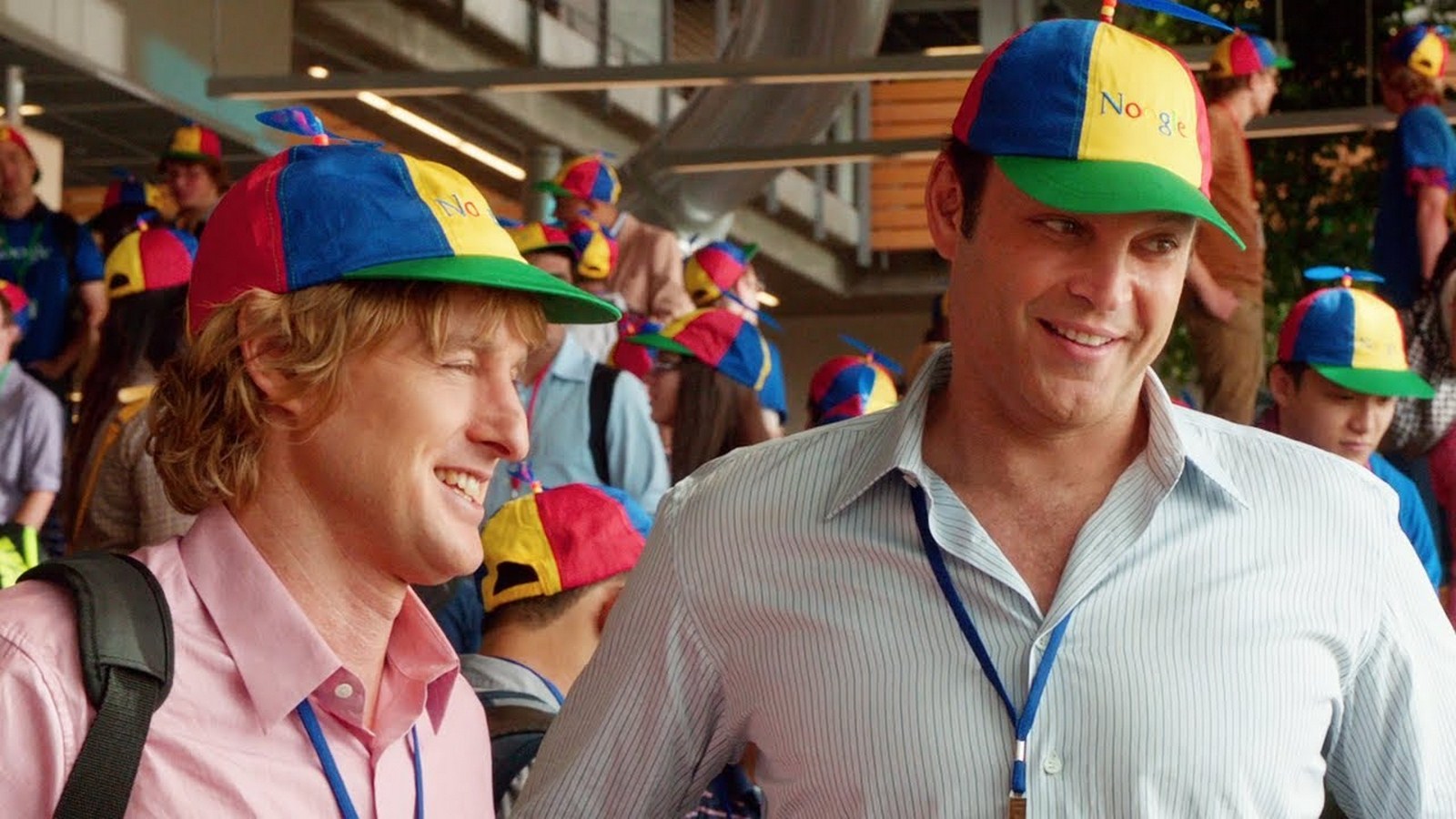
The 2013 comedy film “The Internship” pokes fun at today's competitive internship culture (20th Century Fox Pictures).
At a time when more students are going straight to college without any work experience, there’s pressure to get that experience through internships. To get a better sense of the rise of the internship, WGBH's On Campus spoke with Anthony Carnevale, director of Georgetown University's Center on Education and the Workforce.
______________________________________________________
Interview Highlights:
Anthony Carnevale: The premium experience for college students nowadays is the internship. One of the things that has happened in the American economy since the 1980s is that, in those days, about 70 percent of Americans had only high school degrees and they tended to get their job training on the job. But that’s just not true anymore because you have to have a college degree to get the job in the first place. So it's harder and harder to get work experience unless you do have a degree in the first place. In the end the internship becomes the premium experience that everyone is chasing to combine experience with their degree.
Kirk Carapezza: Do you think college curriculum is really preparing students for the jobs of tomorrow?
Carnevale: There's a fundamental issue with curriculums both in college and, truthfully even more so in the K-12 system, and that is that they are still very academic. Colleges aren't set up to give people work experience along with academic preparation. So there really is a huge gap in experiential learning for college students still, because we really don't connect our college system to the real world of workplaces at all.
Carapezza: Why don’t you think we are making that connection?
Carnevale: In the old days, we made that connection for non-college workers in apprenticeships, in the blue-collar functions in technical jobs. We separate college learning from work experience very aggressively. In the European case, the internship or apprenticeship comes with the college major. In the American case, the two are entirely separate experiences. So it's a bridge we've never really built, but one that's increasingly important.
Carapezza: What are employers saying? Are they looking for grads who only have that work experience?
Carnevale: The catch-22 is that the students get their degree, they go to apply for a job, they're qualified in an academic sense, but the employer doesn't hire them because they have no experience. [Students], quite rightly, get very frustrated because they say, 'How am I supposed to get experience if no one will hire me?' So the students who have the experience, those are the students who get the jobs first.
On Campus takes a closer look at how college students are approaching summer internships.










